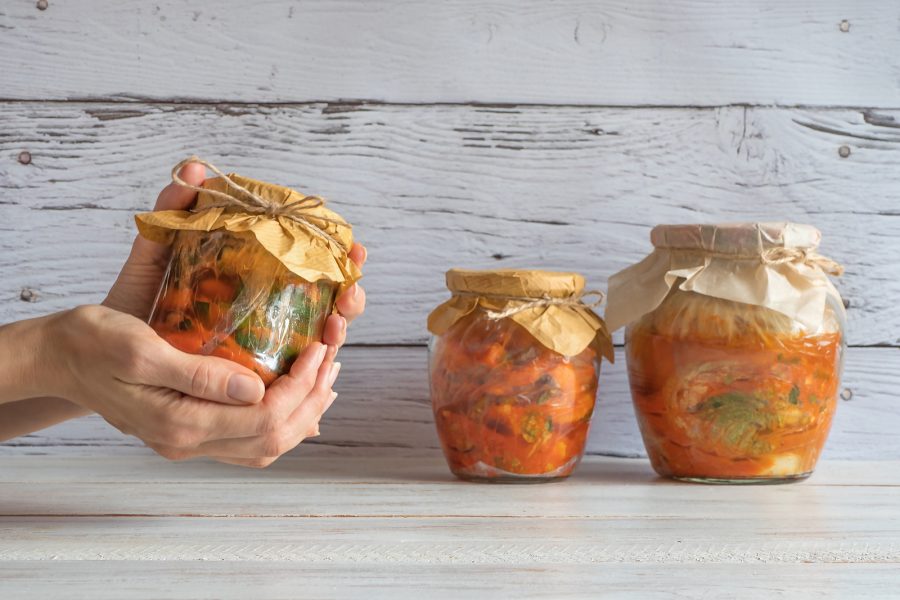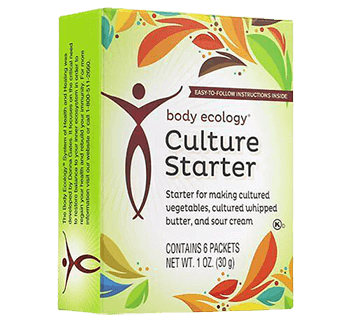
Could kimchi combat COVID-19?
New research looking at fermented food consumption in countries in Europe has found that for every extra gram of traditional fermented foods consumed each day, the risk for COVID-19 mortality fell by a staggering 35.4%. Please read that first sentence again. This intriguing new study lends even greater weight to existing research linking the consumption of probiotic-rich fermented vegetables to a greater likelihood of recovery from coronaviruses. So, what’s the story and how could kimchi go head to head with COVID-19?
One of the more confusing aspects of this latest global pandemic is the startlingly different death rates between and within countries, especially in Europe. Some countries have a relatively low death rate in large part because they have successfully controlled the number of cases through proactive public health measures like mask-wearing, contact tracing, and quarantining new arrivals and known cases. But even in some countries with large numbers of cases, the actual death count is low.
Age, underlying morbidities, air quality and climate, investment in health care, and other factors clearly play a role in mortality from COVID-19, but a new study strongly suggests that eating fermented vegetables also makes a difference.[1]
Higher consumption of fermented foods linked to lower COVID-19 deaths
The idea for this latest study came about because scientists noticed that some European countries like Belgium, France, Italy, Spain, and the United Kingdom have very high death rates from COVID-19, while Balkan countries, central European and Nordic countries have very low death rates for the most part. In the countries with a very low death rate, the average intake of fermented foods tends to be much higher than in countries with a very high death rate.
This observation led researchers to carry out an ecological study, looking at the potential role of traditional fermented foods in combating COVID-19.
To test their hypothesis, the researchers used data from the European Food Safety Authority (EFSA) Comprehensive European Food Consumption Database to determine average consumption of a variety of fermented foods in European countries. The foods included things like fermented vegetables, pickled/marinated vegetables, fermented milk, yogurt and fermented sour or clabbered milk. They then compared this information with mortality rates based on data from the Johns Hopkins Coronavirus Resource Center and used EuroStat to obtain data on several possible confounding factors (such as age, obesity, and population density).
Of all of the factors considered, only the intake of fermented vegetables significantly affected a country’s mortality rate. The researchers state that modern dietary patterns, where people eat reduced amounts of fermented foods, have dramatically changed the microbiome, “and this may have facilitated SARS-CoV-2 to spread or to be more severe.”

Lactic acid in Kimchi is also in fermented vegetables. If you want to increase the amount of Lactobacillus in your homemade fermented vegetables just add our Body Ecology starter. Probiotic-rich fermented vegetables dramatically alter the microbiome helping to support the immune system. 70% of the immune system is in the gut associated lymph tissue.
What this study means
Jean Bousquet and colleagues have published their preliminary report online, but it has not yet been peer-reviewed and should not be taken as conclusive. Still, the findings are fascinating and, added to existing evidence, suggest significant benefits to increasing your intake of fermented foods, especially if you live in a coronavirus hotspot, which could be right in your own neighborhood, workplace, town or city.
The findings are so striking that the authors of this latest study state, “If the hypothesis is proved, COVID-19 will be the first infectious disease epidemic whose biological mechanisms are proved to be associated with a loss of nature.” What they mean by this is that higher death rates from COVID-19 may be related to an underlying vulnerability caused by an altered microbiome.
These researchers aren’t the only ones considering the potential benefits of beneficial bacteria in preventing COVID-19. Researchers in Korea have also found that the lactic acid bacteria Lactobacillus gasseri in fermented sea buckthorn berries inhibit the activation of purine. This is a substance that the SARS-CoV2 virus uses as an energy source to form RNA and multiply, suggesting that fermented probiotic foods containing L. gasseri may help prevent infection from taking hold.[2] The research has not yet been published or peer-reviewed.
And back in 2015, Yong-Ha Park, Professor of Biotechnology in Yeungnam University in Korea suggested in a widely shared TV news clip that lactic acid bacteria found in kimchi could help boost recovery rates from some coronaviruses. He and other researchers noted that lactic acid bacteria increase immunoglobulins and interferon, which helps to help prevent viral infection.
Published research also notes that lactic acid bacteria modulates the function of immune cells, including intestinal epithelial cells, M cells, dendritic cells, and T cells. These bacteria can help maintain the integrity of the intestinal barrier and activate immune system cells to fight infection and prevent overreactions by the immune system.[3]
How fermented foods support immune function
Eating fermented foods throughout life helps to maintain a rich, diverse microbiome. A loss of this diversity can have serious adverse health consequences, but many aspects of modern life can disrupt the microbiome all too easily. These include the widespread use of antibiotics, as well as other drugs, stress, coffee consumption, and other factors.
Fermented foods are a source of probiotics to help support a rich microbiome, and the immune system benefits of kimchi, kefir, unpasteurized sauerkraut, and other traditional foods has long been known, including against coronaviruses.
Some of the typical ingredients in kimchi (and fermented vegetables) including cruciferous vegetables, garlic, ginger, and red pepper powder, are already rich in antioxidants and other nutrients. As these undergo fermentation by lactic acid bacteria, the nutrients in these foods actually increase and become more bioavailable.[4] Lactic acid bacteria also promote the production of short chain fatty acids in the gut, such as butyrate and propionic acid, which have anti-inflammatory, antioxidant, and lipid-lowering activities and also help to increase levels of the vasodilator nitric oxide (which can help with circulation and blood pressure).
Lactic acid bacteria usually found in kimchi include Lactobacillus acidophilus, Leuconostoc, and Weissella. These probiotics are associated with a variety of cardiometabolic benefits, including helping support cholesterol and blood glucose management. In a single serving of kimchi, you’re likely to get about 300 billion colony forming units (CFUs) of these beneficial bacteria, plus a few other beneficial bacteria you won’t easily find in a probiotic supplement. No wonder kimchi is typically served with every Korean meal!
And, if you make your own kimchi or other fermented vegetables at home using a lactic acid bacteria starter, you can be sure it is unpasteurized, probiotic-rich, made with all organic ingredients and isn’t contaminated with MSG or other chemicals.
References
[1] Bousquet J, et al. Association between consumption of fermented vegetables and COVID-19 mortality at a country level in Europe. medRxiv 2020. https://doi.org/10.1101/2020.07.06.20147025
[2] https://geneonline.news/en/2020/03/21/purine-repressing-probiotic-might-halt-covid-19-says-korean-researchers/
[3] Yamashita M, et al. Identification of Immunopotentiating Lactic Acid Bacteria that Induce Antibody Production by in vitro Stimulated Human Peripheral Blood Mononuclear Cells. Biosci Microbiota Food Health. 2012;31(1):7-13. https://doi.org/10.12938/bmfh.31.7
[4] Park KY, et al. Health benefits of kimchi (Korean fermented vegetables) as a probiotic food. J Med Food. 2014;17(1):6-20. https://doi.org/10.1089/jmf.2013.3083








